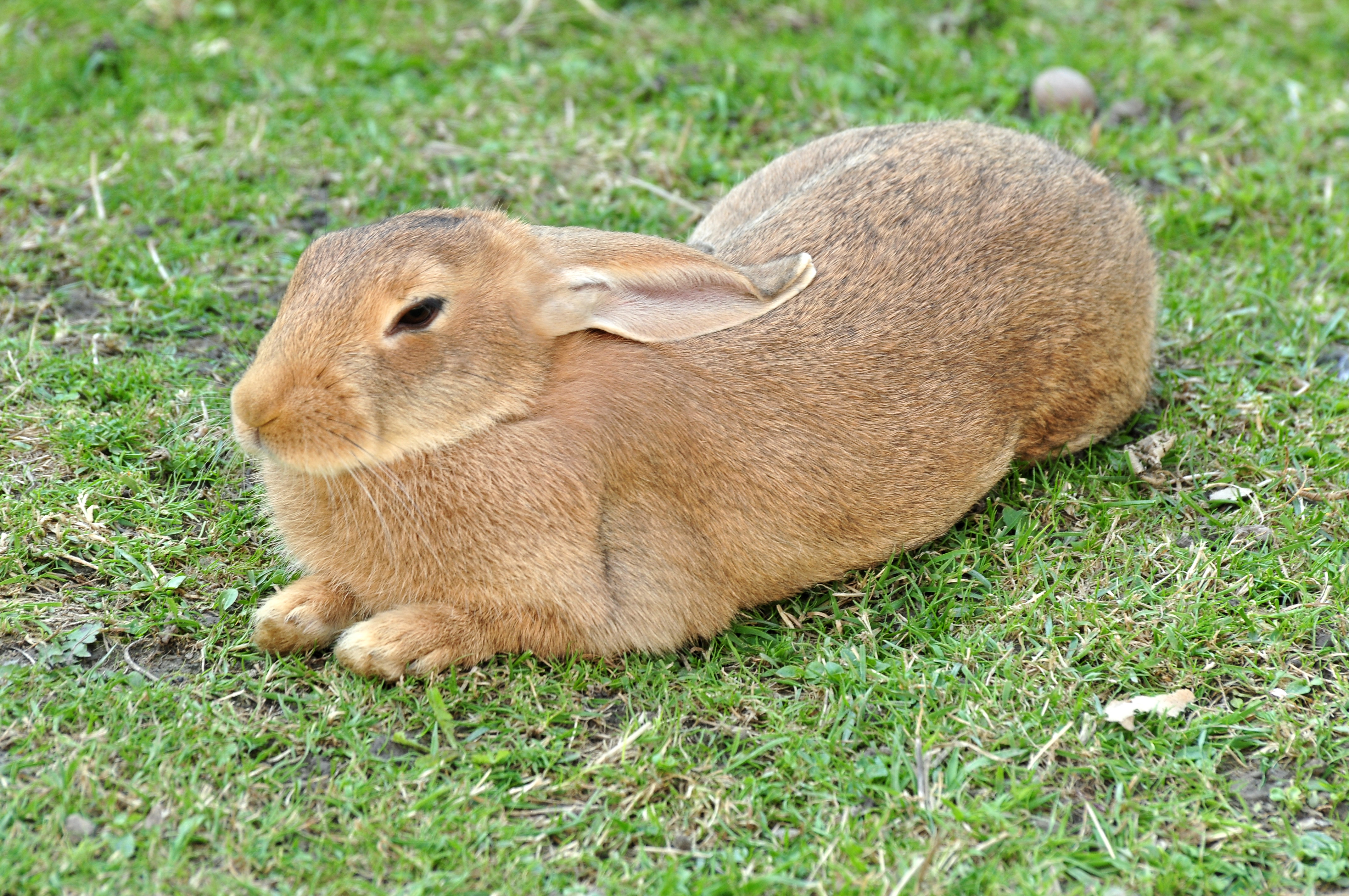



Rabbits make wonderful indoor pets. They are adorable and brimming with personality. But before you swoop into the shelter and pick out a cutie, there are a few things you should know to ensure a rabbit is right for you and your family.
- Finances: Owning a pet rabbit comes with added financial responsibility. Be prepared to spend money up front on the adoption fee ($60+), as well as housing/food/bunny proofing supplies. In addition, be sure you’ll be able to afford ongoing costs for a bunny on food, litter, and vet bills (including spay/neuter fees if the bunny didn’t get the surgery while at the shelter/rescue). To give you an idea of costs, check out our article How Much Does a Pet Rabbit Cost?.
- Bunny Housing: Rabbits are social animals. The location of a rabbit’s housing area within your home (which can take the form of a puppy pen, bunny condo, large cage, or just an area with the food, litter boxes, and cardboard castles if the bunny is free reign) is an extremely important consideration. You’ll have to make sure the rabbit has a place to relax by himself but is not completely secluded from the family. Rabbits need social interaction, plenty of exercise, and a lot of enrichment activities. Take a look at our Housing article to learn more.
- Bunny Proofing: If the bunny will have free reign in the house/apartment/room, you will absolutely need to bunny proof the area. Even if you keep the bunny in a cage, condo, or puppy pen, you still will need to safeguard your home when you let the rabbit out for supervised exercise. Rabbits are very curious and persistent creatures. They will find a way to get into your computer cables, wires, molding, couch piping, slightly frayed rug, etc. They will eat your most important documents. Check out our Bunny Proofing article for tips on protecting your bunny and your things.
- Enrichment: Rabbits will get into trouble if they’re bored. They’ll make their own fun chewing your possessions if you don’t provide alternate forms of entertainment. A great diversion for rabbits is a cardboard castle filled with empty toilet paper rolls, old phone books, and other paper products you find around the house.
- Litter Box Training: Most rabbit rescues will start the process of litter training the bunnies they take in. So a rescue bunny should have the basics down, but sometimes rabbits forget their good habits once they move into their new home. This is natural because the drastic change in environment can be very stressful. Litter training can be frustrating at times, but the key is persistence and consistent reinforcement of good habits. Read our article about litter training to learn more.
- Nutrition: It’s important to have a good understanding of a rabbit’s nutritional needs throughout his/her life. Proper nutrition (and in the correct amounts) is vital for a rabbit’s well-being. The staple of a rabbit’s diet is fiber. Rabbits must have access to unlimited grass hays at all times. It is very important to ensure that hay allergies will not pose a problem for anyone in the household. For a more detailed explanation of rabbit nutrition, see our article, What to Feed Your Pet Rabbit and Hay for Rabbits: Essential for Good Health. Another great link is the House Rabbit Society’s article about diet, which discusses the appropriate amounts as well as types of food to give your rabbit from youth to old age.
- Bonding with a Bunny: Rabbits can be quite affectionate animals, but personalities definitely vary from individual to individual. Most rabbits don’t particularly like being held/picked up, and some bunnies are more aloof than others. See our article, Building a Relationship with Your Pet Rabbit, for more information about taking steps to bond with a bunny.Talk with a volunteer at a local rabbit rescue to learn more about which rabbit (or pair of rabbits) has a personality that would be a good fit for you and your family.
- Traveling: Rabbits get very stressed out when traveling or when placed in unfamiliar environments, so it’s best to have a good pet sitter on hand to watch the bunny if you go on vacation. If you’re a big jet-setter, with the need or desire to move to various places around the world, rabbit ownership probably isn’t right for you. Very few airlines allow rabbits to fly in-cabin within the United States and abroad. Oftentimes rabbits are subjected to multi-month-long quarantine periods upon arrival into other countries, and in many places, pet rabbits are not permitted in at all.
- Children and Rabbits: Rabbits live 10+ years. Adopting a rabbit is a long-term commitment. Rabbits are NOT low-maintenance pets. So adopting a bunny should be a family decision. When kids turn 18 and go to college or look for work, it’s important that the rabbit still has a safe, loving home. Read our article, Children and Pet Rabbits, for more information.
Bottom line: Do your research before adding a bunny to your family! While it’s easy to get swept up in the excitement of getting a pet rabbit, it’s important to first assess whether or not you can truly provide a good forever home to a bunny.
If you’ve done your research and feel confident you can properly care for a bunny, please adopt a rabbit from a rescue or shelter instead of purchasing one from a breeder or pet store. Shelters are overflowing with homeless bunnies of all shapes and sizes. See our article, Benefits of Adopting a Rabbit, for more information.
You can get ready for your new pet by reading, Preparing for Your First House Rabbit, which includes a list of initial bunny supplies.
